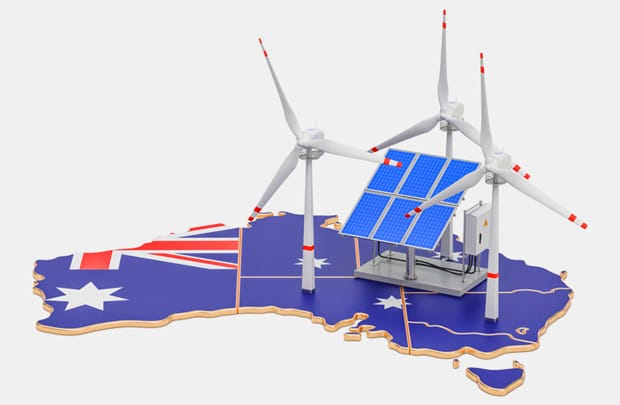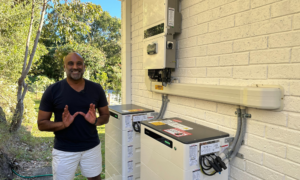The majority of voters in Barnaby Joyce’s New England electorate support clean energy investment, a new poll shows.
The poll of more than 1,000 voters in the Deputy Prime Minister’s NSW electorate showed voters turning against coal in favour of renewable energy.
Constituents taking part in the poll by The Australia Institute, give clean energy like solar hot water and home battery storage their backing.
Around 60 per cent of New England voters think the Turnbull Government should introduce a Clean Energy Target, the poll shows.
A majority blamed the Federal Coalition Government for the current uncertainty in energy policy.

And similar results emerged in the electorate of Hughes, occupied by strongly pro-coal Coalition member Craig Kelly.
Questions asked about clean energy investment
Voters responded to three key questions about Australia’s energy policy and investment.
1. Clean Energy Target
When asked if the Turnbull Government should introduce a Clean Energy Target, 59.7 per cent voted yes, 24.1 per cent voted no and 16.2 per cent were unsure.
2. Current energy uncertainty
When asked who was responsible for energy policy uncertainty, 30 per cent chose the Federal Government, while 8 per cent blamed state governments.
3. Energy investment type
When asked what the Government should be investing in, 50.6 per cent favoured renewables, 36.7 per cent chose coal and 12.7 per cent were unsure.
Support for renewable energy, including wind and solar panel installation, was consistent across age groups.
The notable exception was the 65 + demographic, which slightly favoured coal. Females also showed slightly higher support for clean energy investment than males.
Strong support for reduced carbon emissions
The research follows The Australia Institute’s ‘Climate and Energy Program Report’ released earlier in September.
In order to meet Australia’s commitments under the Paris Agreement, the report recommends significant carbon reductions.
The electricity sector would have to reduce emissions by between 40–55 per cent below 2005 levels in 2030.
Delay in power sector reform would also have far-reaching implications for Australia, the report claims.
A greater responsibility for carbon reduction would also be pushed onto other sectors like agriculture, transport and manufacturing.
















































